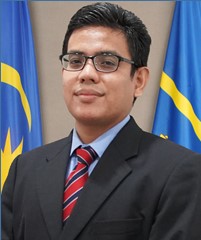.png)
Working together with people from all walks of life, chemical engineers help to keep the world going and better. Like all engineers, we design and build equipments, then make them work safely and economically. These are mostly business-to-business activities, often outside public eyes. We specialize on activities that involve chemical and biochemical changes on a large scale. For example, we purify crude oil into petrol, kerosene and diesel that transport everyone around. We too make plastics and their biodegradable versions.
Others such as fertilizers, drinking water, cooking oils, packaged foods, medicines and vaccines all have to be produced in large amounts, and here chemical engineers come in. The chips that run our handphones are designed by electronic engineers, but chemical engineers make them in large quantities. Increasingly, chemical engineers deal with living things such as bacteria and plants to produce renewable products. As large-scale chemical processing involves potential adverse social and environmental impact, chemical engineers also protect people and Earth by clever designs and responsible operations.
As for all fields of engineering, the major categories of career opportunities are in design, construction, operation and technical marketing. The only difference is the items involved. Chemical engineers focus on facilities for chemical and biochemical processing and their products. For example, to make a product, some chemical engineers design the production facility; others install and test the equipment; once completed some chemical engineers have to run the 24-hour production; and finally, somebody has to market the product! For products not marketed directly to the public (e.g. plastics, vaccines), the role of chemical engineers is even greater as these require significant technical knowledge. Graduates of the department have been employed by a large variety of companies including Petronas, Shell, ExxonMobil, Nestle, KLK, Technip, JJ-Lurgi, UGL.
Less-taken paths include finance, education, enforcement and research. There are chemical engineers who serve in banks, e.g. to evaluate loan applications to build chemical plants. Some go further to become CEOs, CTOs and CFOs of large companies. Others stay in universities to do research and to train more chemical engineers, or work in government agencies to attract foreign investments or to ensure that safety and environmental laws are followed. Certainly, some have also become respectable politicians. There is room for genders, every level of ability and every type of personality. The key is that engineering develops an analytical and quantitative mind, and that could be put to good use wherever needed.
This programme consists:
Types of Courses | Credits |
University Courses | 20 |
Faculty Core Courses | 12 |
| Department Core Courses | 101 |
| Department Elective Courses | 10 |
| TOTAL OF CREDIT | 143 |
Semester I: September each year

Dr. Zulhelmi Bin Amir
Senior Lecturer
E: zulhelmi.amir@um.edu.my
T: 03-79674480
Programme Educational Objectives (PEO)
PEO1- Professionalism
Graduates establish themselves as practicing professionals in Chemical Engineering or related fields.
PEO2- Continuous Personal Development
Graduates engage in lifelong pursuit of knowledge and interdisciplinary learning appropriate for industrial and academic careers.
PEO3- Societal Engagement
Graduates contribute to sustainable development and the well-being of society.
Programme Objectives (PO)
Last Update: 23/02/2026